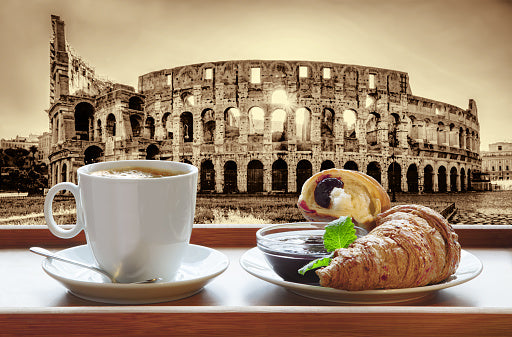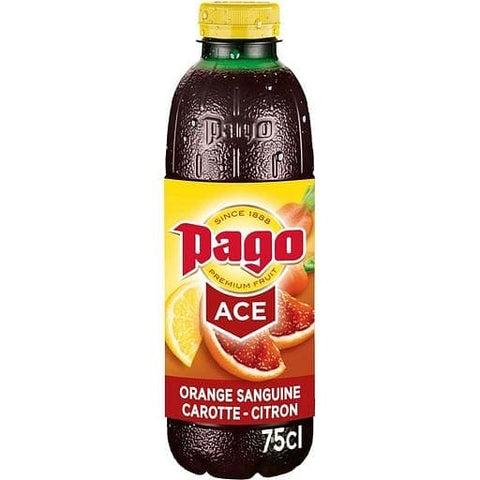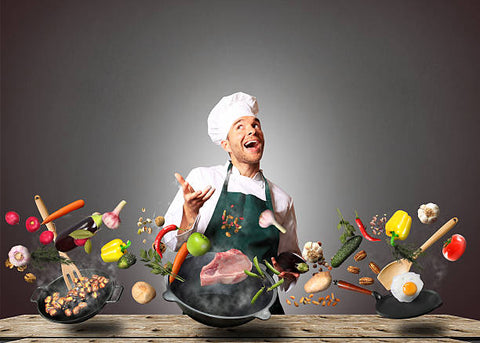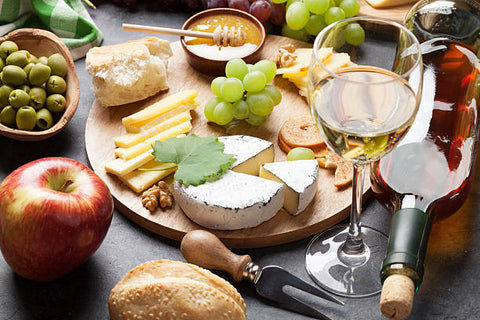French cuisine is a highly respected and celebrated culinary tradition that has influenced the world of food for centuries. It is known for its complex flavors, meticulous presentation, and emphasis on fresh, high-quality ingredients. In this essay, we'll explore the rich and fascinating history of French cuisine, from its earliest roots in the Middle Ages to the present day.
First roots
The earliest roots of French cuisine date back to the Middle Ages, when French cuisine was heavily influenced by the cuisine of the aristocracy. At that time, the upper classes savored elaborate and extravagant dishes often made with expensive ingredients like game meat, truffles and foie gras. These dishes were characterized by their complex flavors and intricate presentation, and they were often served in multiple courses.
One of the most famous dishes of this era was the "Roast Piglet of the King", which was served at the coronation banquet of Charles V in 1364. This dish consisted of a whole piglet stuffed with herbs, spices and a variety of other ingredients, then roast until crisp and golden.
Over time, French cuisine began to evolve and refine. In the 16th century, Catherine de' Medici, the Italian-born queen consort of King Henry II of France, brought Italian chefs with her to France when she married the king. These chefs introduced new techniques and ingredients to French cuisine, including pasta, tomatoes, and various herbs and spices.
In the 17th century, French cuisine began to take on a more distinctive character. French chefs began experimenting with new ingredients and techniques, creating dishes that were both delicious and visually stunning. One of the most famous chefs of this era is François Vatel, responsible for organizing a grand banquet for King Louis XIV at the Château de Chantilly in 1671. This banquet included more than 2,000 dishes and was spread over several days. .
In the 18th century, French cuisine continued to evolve and improve. Classic French sauces like Béarnaise and Hollandaise were developed during this time, as were dishes like coq au vin and bouillabaisse. French chefs also began to pay more attention to the presentation of their dishes, using elaborate garnishes and decorative plating techniques to make their food taste as good as it tasted.
Overall, the early roots of French cuisine were heavily influenced by the cooking of the aristocracy and the introduction of new ingredients and techniques from other culinary traditions. These early developments laid the foundation for the golden age of French cuisine in the 19th century, when French chefs began to innovate and create some of the most iconic dishes in French culinary history.
The golden age of French cuisine
The golden age of French cuisine refers to the period of culinary excellence in France in the 19th century. During this time, French chefs have gained worldwide recognition for their innovative techniques, elegant presentation and exquisite flavors. French cuisine has become a symbol of refinement and sophistication, and today it remains one of the most beloved cuisines in the world.
The golden age of French cuisine was characterized by several key developments. Perhaps the most important of these is the codification of French cuisine, which took place at the beginning of the 19th century. This codification involved the creation of a standardized set of culinary techniques, as well as the establishment of a hierarchy of sauces and dishes.
Another important development during this time was the rise of the professional chef. Prior to the 19th century, most cooks in France were either servants or apprentices who learned their craft through trial and error. But during the Golden Age, chefs began to take on a more prestigious role in society. They were recognized as skilled professionals capable of creating culinary masterpieces that delighted the senses and satisfied the appetites of the most discerning diners.
One of the most famous chefs of the Golden Age was Marie-Antoine Carême, often referred to as "king of chefs and chef of kings". Carême was born in 1784 and began his career as an apprentice cook at the age of 10. He became one of the most renowned chefs in French history, creating elaborate and complex dishes that are as beautiful as they are delicious. Carême is credited with popularizing the use of culinary molds and creating many classic French dishes that are still enjoyed today.
Another important figure of the Golden Age was Auguste Escoffier, often called the "father of modern French cuisine". Escoffier was born in 1846 and worked as a chef in several famous French restaurants before opening his own establishment, the Ritz-Carlton in London. Escoffier is credited with introducing new techniques and ingredients to French cuisine, as well as simplifying many classic dishes to make them more accessible to a wider range of diners.
During the Golden Age, French cuisine also began to spread its influence around the world. French restaurants have opened in major cities like London and New York, and French chefs have traveled to other countries to share their knowledge and expertise. French culinary techniques and dishes have become part of the international culinary vocabulary, and today French cuisine remains a major influence on culinary traditions around the world.
Overall, the golden age of French cuisine was a period of great creativity, innovation and refinement. It marked a period of unprecedented culinary excellence in France and helped make French cuisine one of the most beloved culinary traditions in the world today.
The 19th century: Auguste Escoffier and the codification of French cuisine
The 19th century was a time of great change and upheaval in France, and this period had a significant impact on French cuisine. One of the most important figures in the world of French cuisine at this time was Auguste Escoffier, a legendary chef widely regarded as the father of modern French cuisine.
Escoffier's innovations included the creation of the kitchen brigade, a kitchen hierarchy system that is still used in many professional kitchens today. He also developed Nouvelle Cuisine, a movement that emphasized lighter, more delicate dishes prepared with fresh, seasonal ingredients.
Escoffier was also responsible for codifying classic French dishes, such as bouillabaisse and beef bourguignon. He wrote several influential cookbooks that are still used as references today, including "Le Guide Culinaire" and "Ma Cuisine".
The modern era
French cuisine continues to evolve and innovate in the modern age. Today, French chefs are experimenting with new ingredients and techniques, while paying homage to the classic dishes that have made French cuisine so iconic.
One of the biggest trends in modern French cuisine is the emphasis on sustainability and local ingredients. Many chefs strive to source from local farmers and producers and use innovative techniques to reduce waste and minimize the impact of their kitchens on the environment.
Another trend in modern French cuisine is the growing popularity of fusion cuisine. Many chefs blend traditional French techniques and ingredients with flavors and techniques from other culinary traditions, creating dishes that are both delicious and unique.
In the end...
French cuisine is a rich and storied culinary tradition that has had a profound influence on the world of food. From its earliest roots in the Middle Ages to the present day, French cuisine has evolved and changed
History of French cuisine




